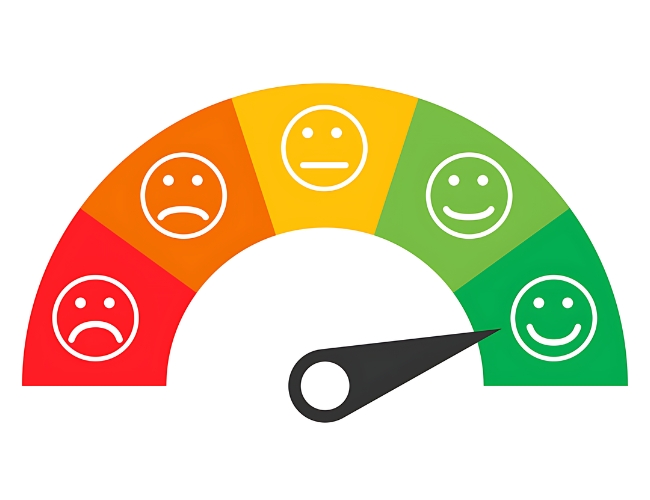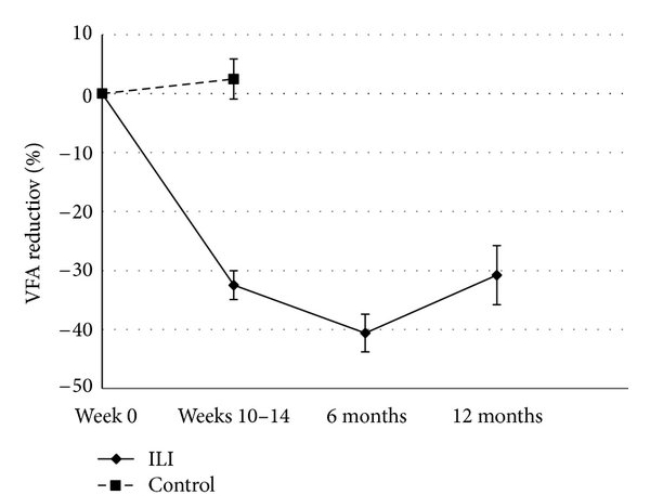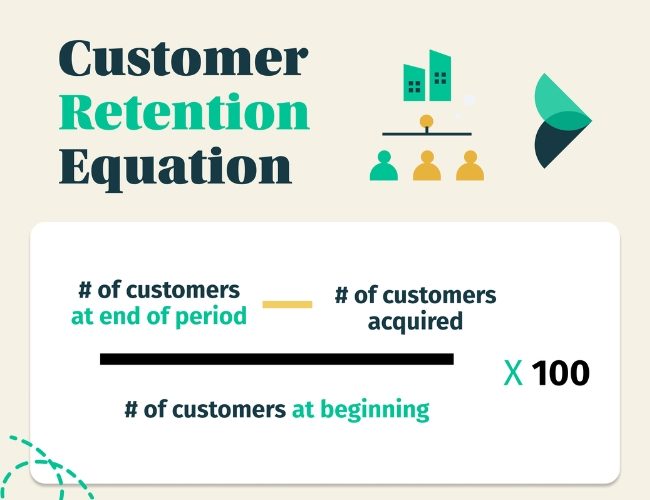Top Metrics to Monitor in Nutrition for Client Success
Nutrition is a constantly evolving practice, and so with change comes uncertainty in the pursuit to ensure client satisfaction. With a focus on the main metrics that will naturally include weight management, nutritional adherence, and digestive health, you are far better armed at serving them, proving value for your services, and creating relationships for the long-term. The only way to guarantee a more sustainable and successful practice is through monitoring of these metrics. We explore which core metrics to track for client success in nutrition and offer practical tips and insights in this guide.
1. Client Satisfaction

The first important measure of client satisfaction is the degree to which clients are satisfied. Satisfied clients will always remain loyal and will refer others, and they are likely to very actively participate in your services. To measure satisfaction correctly, you may use surveys or feedback forms. Asking particular questions about their experiences helps gain insight into what works well and what may need improvement.
Second, client satisfaction measurements will also show trends over time. For instance, while analyzing your scores on client satisfaction, if you notice low scores coming up over time, it may be the right moment to review your strategy. Of course, soliciting feedback is strongly encouraged at all times, not only because you respect the opinion of your clients, but it is also how a culture of continuous improvement exists in your practice.
Best Practices for Monitoring Client Satisfaction:
Online Surveys: You can use Google Forms or SurveyMonkey, which makes it pretty easy to collect feedback.
Add Ratings: Let your customers rate their satisfaction levels with you on a scale of 1 to 10 about every aspect of your service.
Follow-up: Call or email the clients from time to time to observe the response of the clients regarding the progress and support given by you.
2. Weight Management

The other very important metric is weight management. Loss or management of weight is a top priority for most clients, meaning you will monitor their weight frequently to measure their progress and calibrate their nutrition plans if need be. This, however, must be approached holistically, though.
Monitoring the progress in body composition and any other health indicators beyond weight loss is fundamental. For instance, body fat percentage, muscle mass, and waist circumference are some of the metrics offering more holistic views of a client’s advancing status concerning weight management. Another point of the multifaceted approach is that it will allow clients to not only witness the fruits of their labor but also grasp the significance of these metrics. It leads to making it drive across the proposition that proper weight management gets to weigh at an appropriate point not only in aesthetic but also in health terms.
How to Track Weight Effectively:
Regular Follow-Ups: Advise your clients to monitor their weight every two weeks or month. That will make them feel responsible for the weight management.
Technology: By allowing clients to utilize weight management and body composition tracking apps, you can enhance their engagement and accountability.
Realistic Expectations: It’s essential to guide clients on setting achievable weight loss goals. By doing so, they are less likely to lose hope and remain motivated throughout their weight management process.
3. Adherence to Nutrition

This is a measure of how well clients adhere to plans. Nutritional adherence is one of the essential measures because it determines the direction of client success. Recording using food diaries or even a mobile application can act as effective tools; these can journal meal inputs and easily mark out the patterns with possible directions for adjusting plans when necessary.
This would encourage clients to think about nutritional adherence, increasing accountability and commitment. For example, you may have a weekly session where you discuss their food logs so you can see where they may experience potential challenges they might encounter. It provides them with support aside from giving them strategies on how to overcome barriers for nutritional adherence. Through this process, commitment is built, and, overall, nutritional adherence is maximized.
Recommendations on the Monitoring of Nutritional Adherence:
Daily Food Diaries: Clients should maintain food diaries to write all the food taken during regular meetings. Trends or triggers for nonadherence to nutritional requirements are easily identified during such a process.
Mobile Apps: Recommend apps like Fitrofy, which makes it easy to record one’s meals. Tracking of all types of food products consumed will be made easier, thus maintaining nutritional adherence.
Reflection Sessions: Conduct regular sessions with the clients and review their food log. At the end of it all, these reflection sessions provide them with loads of food for thought and reinforce their commitment towards nutrient adherence.
4. Energy Levels

Energy levels are mostly ignored in nutritional analysis. Most of your clients come to you looking for increased energy and strength in their bodies. Tracing how energy levels change with the implementation of dietary changes helps a professional determine how effective the recommended changes will be. Ask the clients to mark up their energy levels on a scale and see how these levels fluctuate with their food intake. In doing so, the clients do not just become conscious of how their nutrition affects them, but they also begin to feel empowered.
An understanding of their energy levels also allows the client to recognize which foods or patterns are adding to or detracting from day-to-day vitality. This understanding can allow more informed choices in what they eat.
How to Track Energy:
Daily Energy Logs: Encourage clients to write out what their energy level has been at various points throughout the day and correlate those with meals they have had.
Weekly Discussion: Schedule a time to discuss with clients how their energy has risen and fallen and how that does or doesn’t relate to what they ate.
Teach: Teach about foods that people consume to produce energy; complex carbs and proteins.
5. Digestive Health

In addition to exercising, digestive health is important for overall client success. Most clients tend to report different forms of symptoms created from bad digestive health, such as bloating, constipation, or irregular bowel movements. Therefore, it would be helpful to encourage the clients to pay attention to their digestive health by monitoring symptoms in correlation with what they eat.
This would allow the clients to identify probable triggers and create tailored recommendations to restore the gastrointestinal health of clients. Lastly, seeking care of their digestive health also does away with discomfort while providing them with improved health and success in their nutrition journey.
Digestive health improves a client’s uptake of nutrients and therefore satisfaction of the client with the nutrition plan. Then, when the client’s digestive health is just right, they will feel better physically. Again, this state of well-being gives one an impetus to comply with plans, making them better nutrition plan followers. More importantly, promoting digestive health not only benefits the general health of individuals but also helps them to be in full compliance and success on their nutrition journey.
Some Ideas on How to Monitor Digestive Health:
Symptom Journal: Educate your clients to keep a symptom journal of their digestive symptoms to look for patterns.
- Teach about Fiber: Teach your clients about the dietetic concept of fiber and how it can be used to improve digestive health.
Recommends Probiotics: Recommand foods that are high in probiotics, such as yogurt, to improve gut health.
6. Moving toward goals

Any client would want to see their progress toward their specific goals; again, measurable goals help assure that the motivation is there. A good way to re-evaluate can be scheduled at those routine check-in times for client satisfaction.
If the clients can feel the tangible changes in their lifestyles, then they will be very much motivated and committed towards their nutrition plans. Cheer them over every milestone achieved as small as it may be.
Tools for Setting and Tracking Goals:
SMART Goals: Guide clients in setting Specific, Measurable, Achievable, Relevant, and Time-bound goals.
- Regular Progress Reports: Give clients visual progress reports to monitor their success.
Adjust as Needed: Be flexible and adjust the goals according to what the client tells you he or she needs and as he or she makes progress.
7. Client Retention Rate- Client Satisfaction

This is also a good indicator of how well you do as a nutrition professional. High retention rates show that clients value your services and enjoy results. To achieve this, calculate the percentage of clients who keep on working with you over time.
You could also run loyalty programs or follow-ups to maintain a relationship and get retention. Demonstrating that you care enough about the client’s long-term success will bring many good things-a strong bond and a thriving practice.
Ideas for Retaining More Clients Through Improved Client Satisfaction:
Follow-ups at Personal Levels: Reach out to customers on the same frequency, showing you care about the journey.
Loyalty Programs: Give your clients an incentive for bringing you a referral or renewing service.
Build Community: Facilitate a non-judgmental sense of community among clients through group meetings or online forums.
8. Health Markers

Lastly, monitoring health markers will allow you to have an overall view of how your client is doing. Parameters such as digestive health, blood pressure, cholesterol, and blood sugar are all measured indicators that can play a huge part in determining nutritional success. Be sure to encourage your client to keep receiving health screenings and monitor their progress.
Monitoring health markers helps reinforce the message of good nutritional adherence and keeps the actual evidence in front of them as well. Whenever clients’ results on health markers are better, it enhances their motivation and commitment.
Tips for Monitoring Health Markers:
Monitoring Health Checkup: Suggest that the client see doctors for every health check-up.
Record Changes: Record changes over time in terms of health markers to show the clients regarding their improvement.
Educate on Nutrition’s Impact: Share how diet changes can influence these markers positively.
Conclusion
Track your key metrics; this is the key to hitting the spot at Fitrofy when it comes to nutrition. Focus on the essentials: client satisfaction, weight management, nutritional adherence, energy levels, digestive health, progress toward goals, and rates for client retention/health markers.
Monitoring and communication build trust and empower clients to take control of their health. By focusing on weight management, nutritional adherence, and digestive health, clients can boost their overall client satisfaction. This engagement not only improves their commitment but also enhances success and long-term outcomes.
This is where https://dietitian.smartdietplanner.com/login is going help all the dietitians and nutritionists
Login with your personal ID and start using it. Till 5 customers it is free.
This is the beta version. You might experience some issues but we promise to make it a matured solution very soon.
Join us in these strategies with Fitrofy and experience a thriving practice and thriving clients. Together, we can change the nutrition landscape forever!.
Prioritize health and well-being with an easy-to-use solution! The Smart Diet Planner supports daily wellness and energy. Discover the benefits of better health habits today.
Download now or reach out at dietitian@smartdietplanner.com |
+91-7037679715 | https://business.fitrofy.com/
